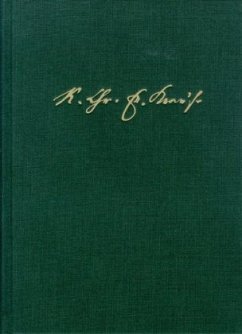Krause's concept of freedom and his theory of the state and social studies cannot be separated from his study of the Freemasons, a study whose background was based on the philosophy of history. In 1808, this prompted Krause to reverse his position. Although up to that time he had regarded the path Napoleon had begun to take in having the world united into one state as the beginning of the third and last epoch of human history, he then replaced "Napoleon" as a historical figure with the "Masonic brotherhood" and the "world state" with the "brotherhood of man". The volume contains seven essays by Krause on this subject, including a print-ready, previously unpublished manuscript entitled 'Frohkunde an die Menschheit' (1832) which dealt with the nature and the internal organization of the planned brotherhood of man.

